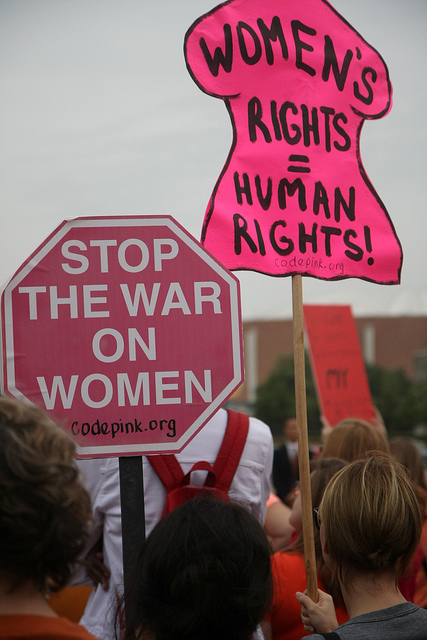
Experts from the UN Working Group recently concluded their 10-day study of how U.S women’s rights compare to the international community and the results don’t look too good. Big surprise, right?!
Visiting Alabama, Oregon and Texas, here’s what they found:
In a global sense the U.S. is behind international standards in public and political representation, economic and social rights and health and safety protections for women. The report strongly urges the U.S. to ratify the Convention on the Elimination of All of Forms of Discrimination Against Women (CEDAW), which the government vowed to do in 2010 and this year. The U.S. is one of only seven countries who have not ratified CEDAW.
Women make up half of the US workforce, with working mothers making up two thirds of household earnings. However, the U.S. workforce still lacks accommodations for “pregnant women, post-natal mothers and persons with care responsibilities, which are required in international human rights law.”
The wage gap between men and women is 21 %. Unfortunately, obtaining a higher level of education does not fill the wage gap. According the study, the wage gap is actually “largest for those with the highest levels of educational attainment.” The disparity in women’s wages are even worse for minority women. Despite the Equal Pay Act and Title VII, there is no federal law that requires “equal pay for work of equal value.” The group encourages raising the minimum wage in order to “reduce the wage gap and reduce poverty.”
The dated Family and Medical Leave Act protects employees rights to take up to 12 weeks of unpaid leave within the first year of giving birth, but only if the company they work for has 50 or more employees. According to the study, the U.S. is one of only two countries in the world that does not have a mandatory paid maternity leave for all women workers.
The study also notes U.S. women’s limited access to healthcare and reproductive services. The U.S does not have universal healthcare, which is particularly detrimental to women, especially African American and Latina women. This hinders their access to preventative care. The report encourages the U.S. to adopt the Woman’s Health Protection Act which would eliminate states ability to restrict women’s access to abortion services.
These findings should not be all to surprising, especially with the recent war on women and the attacks on Planned Parenthood. The study concludes that the U.S. leads in formulating international human rights standards, but has allowed “its women to lag behind international human rights standards.”
Leave a Reply









